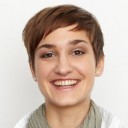One hour from Berlin is the University City, Leipzig where the largest gathering of foundations in Europe just took place (11-13 May 2016). With 1,800 participants, over 250 speakers, 100 sessions, workshops, talks and networking meetings, the German foundation day felt like a huge ‘class reunion’ and is considered a crucial networking event in the German speaking foundation world.
Prior to the conference – the German Association of Foundations – issued the discussion paper, ‘Foundations and demographic change,’ that stated two thirds of the questioned 239 German foundations are dealing with topics and challenges regarding demographic change.
The demographic discussion is far from a new topic in Europe, but it is particularly relevant considering the ongoing and fierce refugee integration debate taking place in Germany. As Angela Merkel pointed out in her opening speech, the refugee crisis promotes new developments in the field of demographic change and puts some pressure on wealthier countries to think outside the box and see the bigger picture. According to a report from the Robert-Bosch Foundation, itself involved since 2005 in various migration programs, a quarter of the 20,000 foundations in German are involved in integration work. Their fields of work thereby cover all tiers within the refugee and integration process e.g:
- Welcome and arrival, e.g. a recently launched project of German community foundations that aims to arrange 2.000 godparenthoods for refugees in 2016
- Assistance with formal issues like housing, the asylum application, health care or language courses supported by many volunteer-based local initiatives and community foundations
- The area of early education and schooling e.g. the Freudenberg foundation supports children with an education program that starts with their arrival in Germany and helps to bypass waiting times in educational institutions
- The support of schooling and vocational training for accompanied and unaccompanied minors in combination with mentoring and coaching is supported for example by the HIT-foundation, the START-foundation, the Schöpflin foundation
- Integration of refugees to the labour market with qualification trainings and mentoring, e.g. by the Robert Bosch foundation.
It is especially crucial to recognise opportunities in order to deal with the major challenge Germany is facing as a country with a new large population of refugees/immigrants. This applies in particular to topics, such as how to ensure equal educational opportunities and labour market integration, where German foundations are already considered as relevant players – and might be even more so in the future.
The integration sessions covered the political debate, but the main focus was on concrete project examples, such as education possibilities for fleeing children (foundation “Schüler helfen Leben”) or mentoring programs for refugees. They furthermore provided the great opportunity for exchanges of experience within the foundations that already run refugee programs. One workshop approached the ‘gender lense’ on refugee work and the challenges that arise with this vulnerable group. Some German foundations already working with refugee women, shared a similar experience: the contact to local communities is highly important for a successful integration but also not always easy to establish. There remains still a lot to do.
In addition to the conference’s main focus on demographic change and its influences on society; youth participation, financial and legal foundation know how, impact measurement, impact investing and the inclusion of the elderly were also discussed along with many other topics. I left feeling the German foundation scene is actively trying to positively shape integration and demographic change, even if there is still a long way to go and a lot to do.
Julia Röhrich, Forum for Active Philanthropy.






Comments (0)